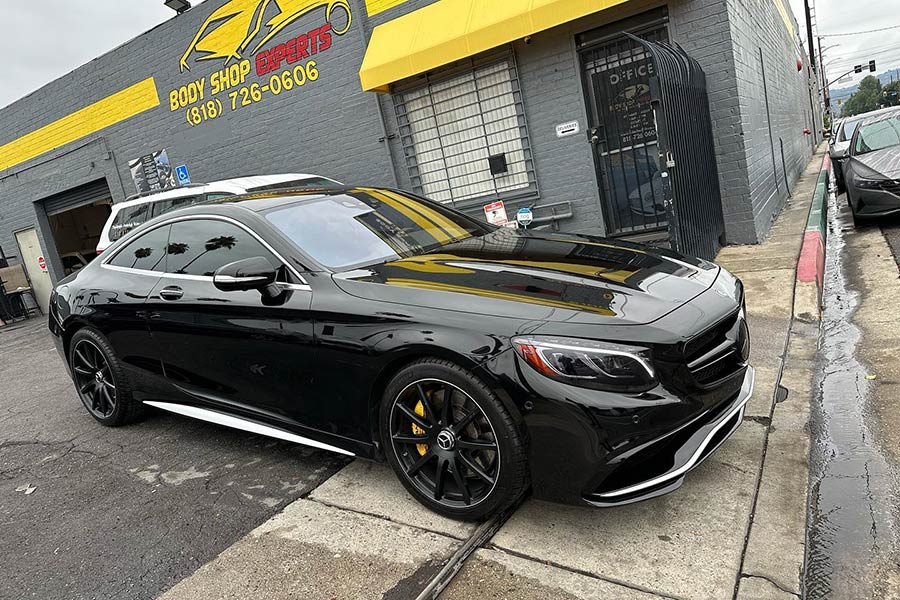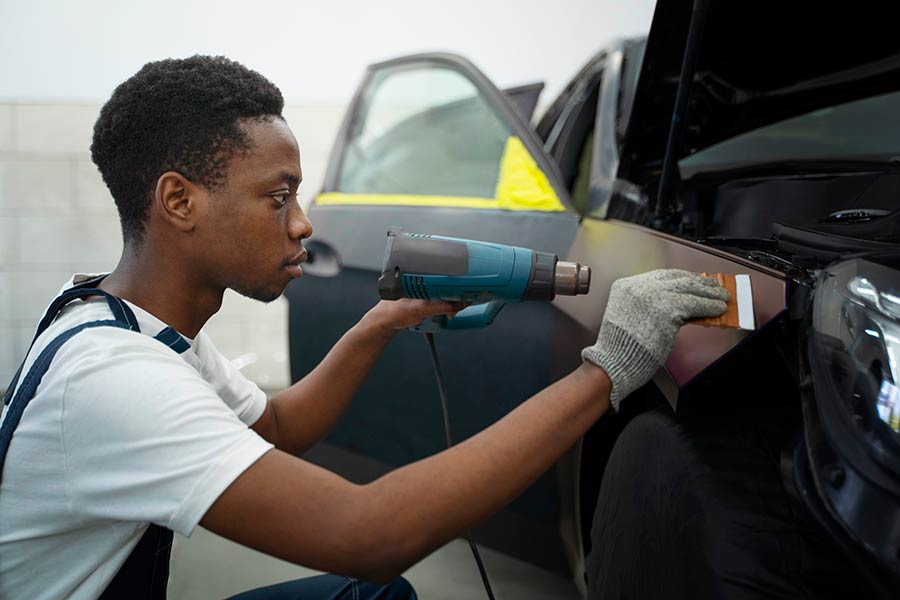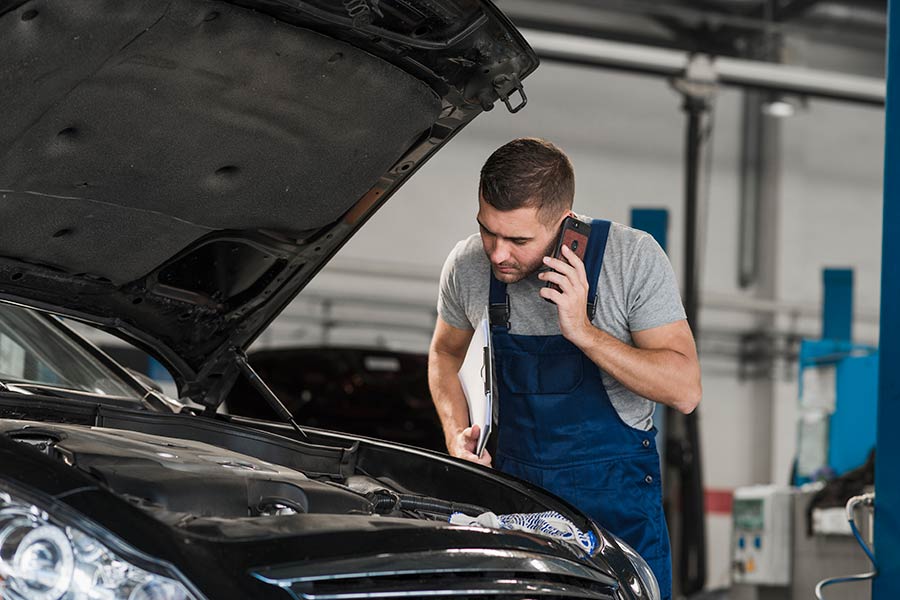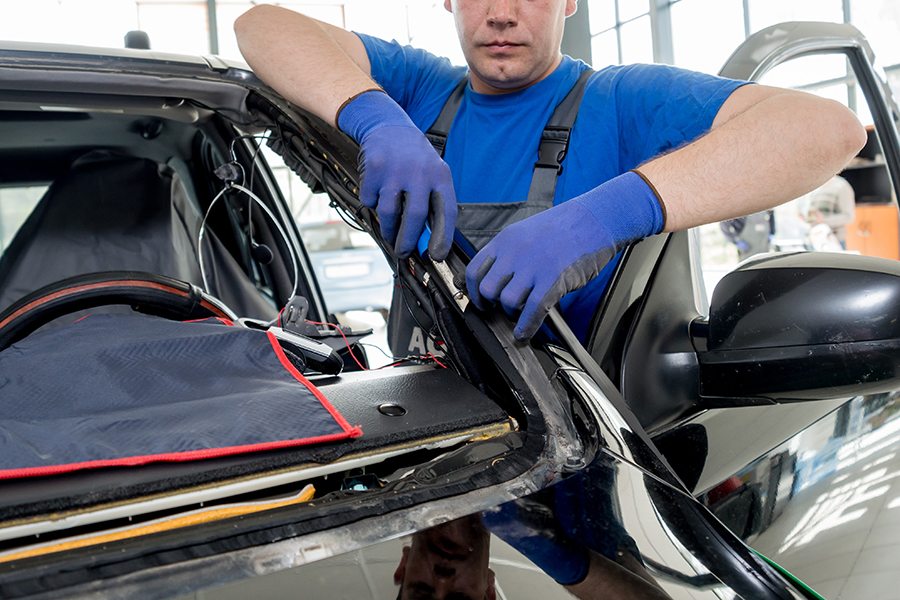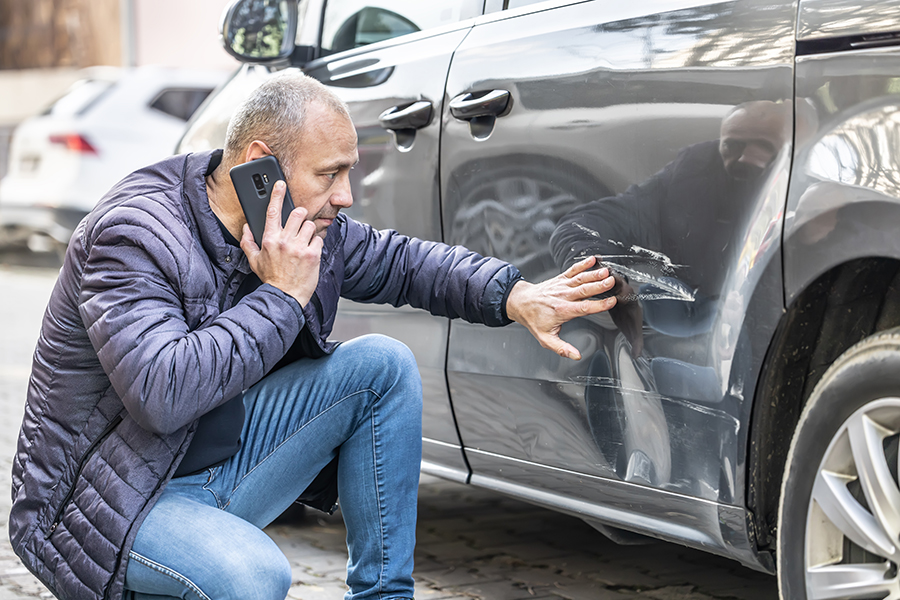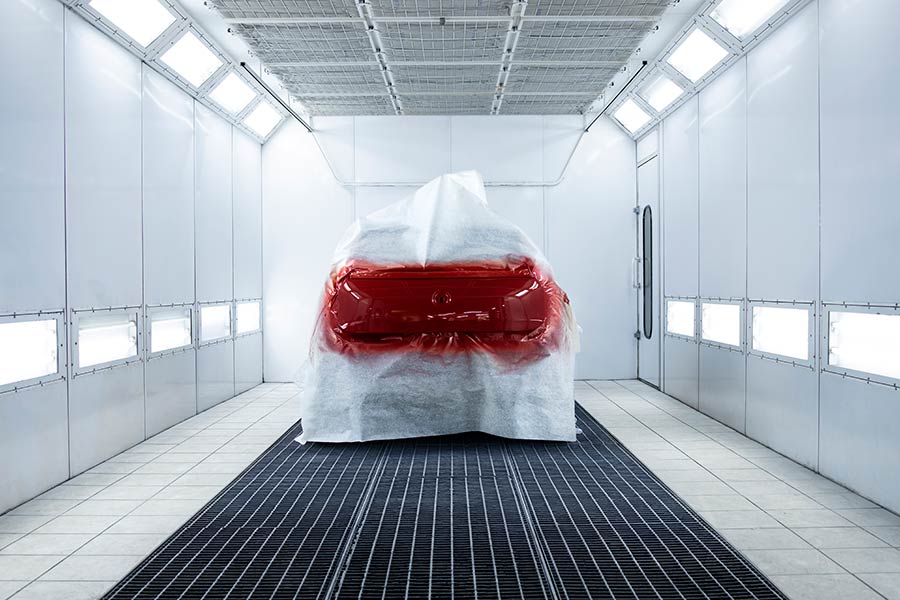Navigating the aftermath of a car accident can feel like wandering through a maze. But when it comes to getting your ride back in shape, choosing an insurance approved collision repair center is like finding a clear path out. These centers meet specific standards set by insurance companies, ensuring that repairs are done right and often speeding up the claims process. This post dives into why opting for an insurance-approved shop can make your road to recovery smoother and less stressful, letting you focus on what's important—getting back on the road safely.
Key Takeaways
-
Choosing an insurance-approved collision repair shop ensures your vehicle repairs are covered, saving you out-of-pocket expenses.
-
You can identify approved shops by checking with your insurance company or looking for certifications and endorsements displayed at the shop.
-
It's a myth that insurance-approved shops compromise on quality; in fact, they often meet higher standards to maintain their approved status.
-
Follow a step-by-step guide to select the best shop, starting with verifying insurance approval, checking experience, and evaluating communication and estimates.
-
The experience of the repair shop matters; seasoned shops bring expertise and knowledge that can lead to better repair outcomes.
-
Ensure the shop has the latest equipment and facilities to handle your specific repair needs, and confirm that they offer flexibility in working with different insurance providers.
Benefits of Insurance-Approved Shops
Cost Savings
Choosing an insurance-approved collision repair shop can lead to significant cost savings. These shops often have agreements with insurers that lower the out-of-pocket costs for repairs. This means less strain on your wallet. They also help avoid extra expenses from future issues linked to the initial damage. Some insurance companies offer discounts or even waive deductibles if you select their approved repair centers. This benefit makes a big difference in your overall repair cost.
Quality Assurance
When you go with an insurance-approved shop, you get a guarantee of quality. These shops use genuine parts and follow the manufacturer's standards closely. Before you get your vehicle back, it goes through rigorous quality checks and final inspections. This ensures your car is not only repaired but restored to its pre-accident condition, giving you peace of mind about the safety and reliability of your vehicle.
Streamlined Claims
Dealing with insurance claims becomes much easier with an approved repair shop. They communicate directly with your insurance company, simplifying the process. This direct line speeds up claim resolution and cuts down on paperwork for you. The shop's assistance in navigating the claims process is invaluable, especially during stressful post-accident times.
Warranty Coverage
Insurance-approved shops often offer extended warranties on their repairs, adding incredible value for customers. This warranty coverage ensures that if anything goes wrong with the repairs, you're protected. It covers a range of repairs, offering additional peace of mind long after leaving the shop.
Identifying Approved Shops
Certifications
Certified technicians play a crucial role in collision repair. Certifications like I-CAR or ASE show that the staff has up-to-date knowledge. This ensures high-quality repairs. Certifications also mean the shop meets strict standards.
Customer Reviews
Reading online reviews helps you understand what to expect. Happy customers often mention timeliness and communication. These reviews build trust in the repair shop. Look for feedback on specific experiences.
Insurance Partnerships
Shops with insurance partnerships offer smoother claim processes. This can lead to better terms for you. Knowing insurers recognize a shop can give you peace of mind.
Modern Equipment
Today's cars need modern tools for safe repairs. Insurance-approved shops likely have the latest technology. This leads to more accurate and safer repairs.
Misconceptions Addressed
Repair Quality
Insurance-approved collision repair shops are committed to high-quality repairs. They aim to restore your vehicle's safety and performance to its pre-accident condition. These shops use manufacturer-approved methods and materials, ensuring the repairs meet strict standards.
After repairs, a thorough testing and inspection process checks everything works correctly. This step is crucial for your safety on the road.
Customer Choice
Many believe that you must use the repair shop your insurance suggests. This isn't true. You have the right to choose any shop you trust. It's important to research and pick a shop that makes you feel comfortable.
Choosing an insurance-approved shop can have benefits, though. These shops often meet specific quality and service standards set by insurers.
Independent vs. Approved
When deciding between an independent or insurance-approved shop, consider several factors:
-
Warranty: Insurance-approved shops might offer more comprehensive warranties.
-
Repair time: Approved shops may complete repairs faster due to their direct relationship with insurers.
-
Cost: Independent shops might provide lower prices but check what your insurance covers.
Your choice should align with your priorities, whether it's cost, time, or peace of mind about the repair quality.
Step-by-Step Selection Guide
Research Online
Start by exploring repair shops online. Look for their certifications, customer reviews, and the range of services they offer. This step is crucial in narrowing down your options to the most reliable ones.
It's wise to check if any complaints or praises have been made about them by industry organizations or consumer groups. This information can be very telling.
Make sure the shop has partnerships with insurance companies and specializes in the type of repair you need. Their affiliations can make the process smoother for you.
Verify Certifications
Always confirm a shop’s certifications directly with the issuing bodies. Authentic certifications show a repair shop's dedication to quality and professionalism. They are not just pieces of paper.
Shops with multiple, relevant certifications are usually better equipped for comprehensive repairs. They signal a broad skill set within the team.
Consult Insurance
Talk to your insurance provider about which repair shops they recommend. This conversation can reveal a lot about how your coverage will apply to different shops.
Ask if they have any direct repair programs or partnerships. These could make your claim process easier and faster.
It's also smart to ask for feedback on specific shops from your insurer. They often have valuable insights based on past claims.
Visit Shops
Visiting potential shops lets you see their operation up close. A clean, well-organized shop usually means they take pride in their work and respect their clients' vehicles.
Speak with the staff during your visit. Their attitude towards answering questions can tell you a lot about their customer service approach.
Notice what kinds of cars they are working on and their condition. It can hint at the shop's expertise level and whether they handle cases like yours often.
Importance of Experience
Skilled Technicians
Skilled technicians play a crucial role in collision repair. They bring years of experience and training to the table. This expertise is vital for high-quality, efficient repairs. Without them, the process could face delays or issues.
These professionals stay ahead by engaging in ongoing training. This keeps them updated on the latest repair techniques and technologies. It's how they ensure your vehicle gets the best care possible.
The presence of skilled technicians often means faster turnaround times for repairs. They understand how to navigate complex issues with ease. Their knowledge contributes significantly to the overall success of the repair process.
Advanced Training
Investing in advanced training for technicians is key for any reputable shop. Such training includes learning about manufacturer-specific requirements and new vehicle technologies. It's this level of education that sets apart top-tier repair services from the rest.
Advanced training equips technicians to handle more complex repairs. They learn about the latest advancements in automotive technology. This knowledge is crucial for working on modern vehicles, which are more complex than ever before.
There's a clear link between advanced training and improved repair outcomes. Shops that prioritize this aspect tend to deliver higher quality work. Their teams can tackle challenges that less trained technicians might not handle as well.
Communication and Estimates
Effective Communication
Clear, timely communication is key in any repair process. It's what keeps you in the loop about your car's status. The repair shop should always keep you updated. This way, you won't feel left in the dark.
Effective communication does more than update. It helps manage your expectations. Knowing when your car will be ready is crucial. It also makes sure there are no surprises.
Transparent Cost Estimates
Before any work starts, a good repair shop will give you a detailed cost estimate. This isn't just a nice-to-have; it's essential for trust. You should know exactly what you're paying for and why.
Transparency in pricing can prevent future issues. It builds trust between you and the repair shop. Plus, if they explain why each item costs what it does, you'll feel more at ease.
Equipment and Facilities
State-of-the-Art Tools
Insurance-approved collision repair centers understand the importance of using state-of-the-art tools. These advanced tools are vital for precise and efficient repairs. They help technicians restore vehicles to their pre-accident condition with accuracy.
Specialized tools play a crucial role in addressing specific repair challenges. For example, laser measuring systems ensure the vehicle's frame is correctly aligned. Paint matching technology guarantees a seamless finish. Both are essential for top-quality repairs.
Cleanliness and Organization
A clean and organized shop reflects a team's professionalism and attention to detail. It shows they care about their work and your vehicle. A tidy environment also impacts the quality of repairs positively.
Organized workspaces are critical for safety and efficiency. Tools and materials are easy to find, reducing repair times. This organization ties back to effective communication, as mentioned earlier, ensuring smooth operations from start to finish.
Insurance Flexibility
Direct Repair Programs
Direct repair programs (DRPs) are partnerships between insurance companies and collision repair shops. They aim to make the repair process easier for customers. When you use a DRP, the repair shop and your insurer work closely together. This means less hassle for you.
The benefits of DRPs include getting your car fixed faster and not having to deal with paperwork. Shops in DRPs get work sent their way by insurers, so they often give these jobs priority. For a shop to be part of a DRP, it must meet strict quality and service standards. This ensures your car is in good hands.
Coverage Options
When it comes to fixing your car after an accident, you have choices. You can choose OEM (Original Equipment Manufacturer) parts or aftermarket parts for repairs. OEM parts come from the car's maker. Aftermarket parts are made by other companies.
Each choice affects your insurance coverage, the quality of the repair, and how much you pay. OEM parts usually fit better and are of higher quality but cost more. Aftermarket parts might save you money but can vary in quality.
Understanding your insurance policy's coverage details is crucial. It helps you make informed decisions about repairs. Knowing whether your policy favors OEM or aftermarket parts can impact your out-of-pocket costs and satisfaction with the repair.
Closing Thoughts
Choosing the right collision repair shop is like picking a partner in a dance competition. You want someone who knows the steps, listens to the music, and moves with you, not against you. Insurance-approved shops are your best bet—they've got the moves, the experience, and they speak your insurance's language fluently. From debunking myths to guiding you through selection, we've covered what makes these shops stand out. They're equipped, experienced, and ready to get your ride back in rhythm without missing a beat.
Now it's your turn to take the lead. Don't let damage keep your car off the road longer than necessary. Swing into action by choosing an insurance-approved collision repair shop that hits all the right notes for you. Your car deserves the best care, and so do you. Let's get back to cruising in style and safety. Ready? Set? Go find your perfect match!
Frequently Asked Questions
What are the benefits of using an insurance-approved collision repair shop?
Insurance-approved shops usually mean quicker claims and repairs, ensuring quality work that meets your insurer's standards. It's like choosing a restaurant your friend already vetted — fewer surprises, more peace of mind.
How can I find out if a shop is approved by my insurance?
Most insurers list approved shops online or through their customer service. Think of it as finding a date on an app, but instead of swiping right, you're clicking through a list.
What common misconceptions exist about insurance-approved repair shops?
Many think these shops are pricier or cut corners to save costs. In reality, they're often your safest bet for quality repairs without breaking the bank — like buying a certified pre-owned car instead of a shady deal.
Can you guide me through selecting an insurance-approved repair shop?
Start by checking with your insurer for a list, then research each shop’s reputation and services online. It's akin to picking a vacation spot — some homework ensures you don't end up wanting to leave the moment you arrive.
Why is experience important in collision repair?
Experience means they’ve seen it all and can handle your car’s issues with eyes closed (not literally). It's like trusting your grandma to make the best pie — she’s got the magic touch from years in the kitchen.
How do communication and estimates impact my choice of repair shop?
Good communication means no nasty surprises on cost or time, and clear estimates show transparency. It's like going on a first date; good conversation and clear intentions set the tone for what’s to come.
What should I look for in terms of equipment and facilities at a repair shop?
Modern equipment and clean facilities are signs they take pride in their work and stay updated with technology. Think of it as choosing a gym — you'd want the best machines and cleanest environment for your workouts.
Is insurance flexibility important when choosing a collision repair shop?
Absolutely! A shop that works with various insurers shows they’re experienced in navigating claims smoothly. It’s like having a Swiss Army knife; versatility is key.
